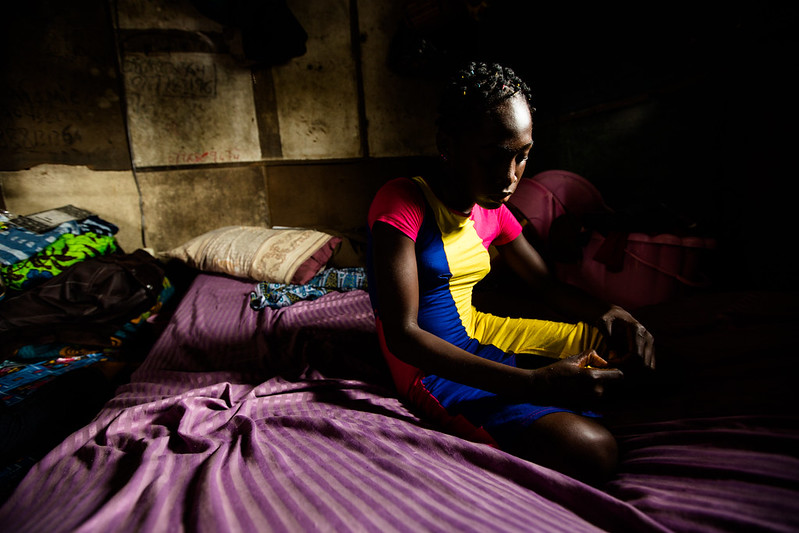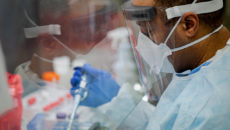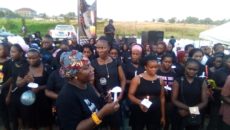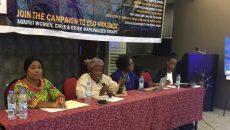MONROVIA, Montserrado – Women and other sexual minority groups in eight communities across three counties in Liberia have reported a reduction in violations and abuse of their rights, after being empowered by two NGOs, ActionAid and Community Healthcare Initiative.
The organizations, through the support of the European Union, embarked on a three-year initiative in 2017 to enhance protection against sexual and gender-based violence for women, girls and sexual minority groups. The project is being implemented in eight communities in Margibi, Gbarpolu, and Montserrado. The communities include are Lakayta and Kpan’s Town in Margibi; Banjor and Low Cost Village in Montserrado; and Smith Town, Gbarquoita, and Bellekpalamu in Gbarpolu.
These communities, according to representatives of ActionAid and CHI, reported high rates of SGBV cases prior to the start of their interventions in 2017.
However, with less than six months to the close of the projects, testimonies from residents, including women and local leaders, indicate that the interventions are yielding fruitful results. While the organizations could not yet provide numbers to verify the anecdotal evidence, interviews with individuals from those communities show that community members are feeling the impact of the interventions.
Orfina Foday, who coordinates the project for CHI, said her organization is collaborating with ActionAid to provide training to women and girls to understand their basic rights and the issues surrounding SGBV in combination with a livelihood program to empower the groups economically.
“We also talk about sexual gender-based violence and sexual reproductive rights in schools,†she said.
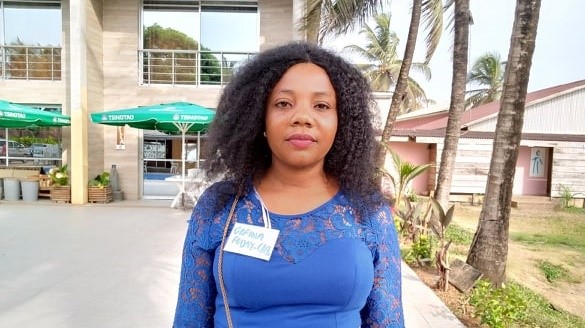
CHI’s programs and project officer, Orfina Foday. Photo: Gbatemah Senah
The training is provided for local community leaders and a group of women dedicated to fighting SGBV in each of the targeted communities, known as the women forum. These women keep on-the-ground awareness and provide advocacy for women’s rights and protections. In many instances, the women also filed SGBV cases – including rapes – to the police and follow them to their conclusion in court.
Three representatives each of the communities where gathered in Monrovia in early March for a peer review meeting. There, The Bush Chicken heard testimonies about their work.
Jestina Kanneh, who manages the project for ActionAid, said the meeting provided a space for the 24 community leaders to share ideas and learn from one another to enhance the protection of members of their communities.
“From the eight communities, we have communities that are very strong and we have communities that are weak. So, bringing them together will also help to improve communities that are considered to be weaker in their implementations,†Kanneh said.
Sekou Kamara, who heads Siaffa Town in Banjor, said he was now seeing a reduction in violations against women and sexual minorities in his community. Additionally, he said the women there are more knowledgeable about their rights, which has helped the women to be more effective in defending their rights.
“Even the funds they were provided has empowered them more to contribute to their community development,†he said, adding that women were making contributions that are more meaningful in decision making within their community.
In Gbarpolu’s Smith Town, a community within which men were said to have an entrenched culture of violence against their women, Town Chief Arthur Kerkula told The Bush Chicken that more men were now recognizing the rights of their partners and seeing them as equals, even in decision making.
“Before, we did not have time for women’s rights, because that’s the culture we got from our parents and our forefathers. Sometimes, we denied them of certain things, which was not right,†he said.
“Because the women got to know their rights and they got united to fight for their rights, men are now afraid that if you violate a woman, she can take you to the law and you can be punished.â€
The head of Bellekpalamu women’s forum, also in Gbarpolu, Gormah Moseray, said women in her community suffered violence and marginalization at the hands of men and were vulnerable until the E.U.-funded initiative reached their town.
“I am a victim of sexual and gender-based violence,†Moseray revealed. “As part of our empowerment, we received endowment funds which we use to pursue SGBV cases to the court. They also gave us livelihood support funds to improve our living standards.â€
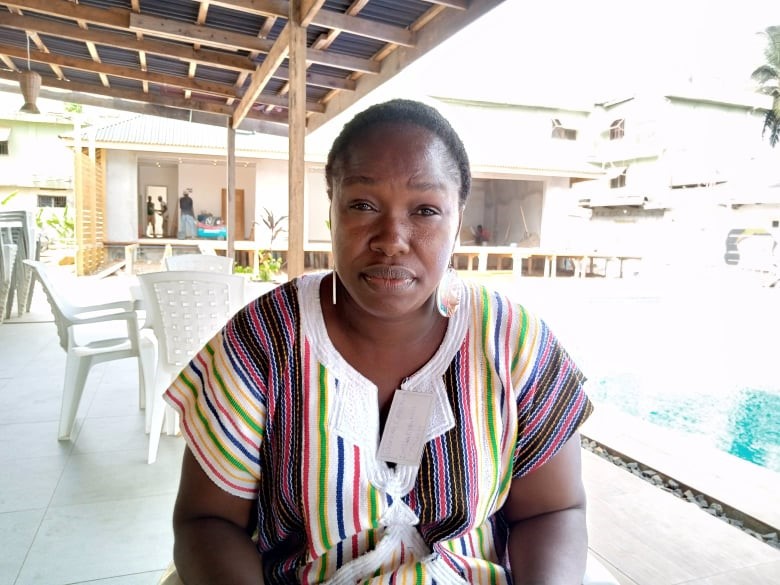
Gormah Moseray, head of Bellekpalamu women’s forum. Photo: Gbatemah Senah
In addition to providing awareness and education of their community of the rights of women, which has alleviated the high rate of violence against women, girls, and sexual minority groups, she said the livelihood support funds has helped to greatly improve the lives of women in her community.
She praised the NGOs and their donor for the initiative and encouraged women in other communities to stand up for their rights.
“No one will better fight for ourselves, more than ourselves,†Moseray said, while noting that women in Bellekpalamu and nearby communities now regard the community women’s forum as an authority they can seek when their rights are violated.
So far, she said the community women forum has reported eight cases of SGBV, including rape, to the police. Some perpetrators of rapes have been tried and are currently serving their jail terms, she added.
In Margibi, the head of the community women’s forum of Lakayta, Helen Morris, reported that compromises of rape cases have reduced, as members of the women’s forum continue to spread awareness and follow up on cases.
A member of the lesbian, gay, bisexual, and transgender community in Montserrado working on the project also praised the E.U. and the project implementers for helping to reduce violence against their members. Choosing to stay anonymous due to the stigma around the LGBT community in Liberia, the individual said the project has taught members of their community to be responsible enough to change people’s negative perceptions about their sexual orientations. This is having the tangible effect of reducing violence against the LGBT community within the targeted community.
A full picture of the impact of the work by CHI and ActionAid is likely to unfold after the project is complete and data is gathered.
Editor’s Note: This article has been modified to use a more inclusive term, “lesbian, gay, bisexual, and transgender,” to refer to a community. A previous version only used “gay.”Â
Featured photo by Morgana Wingard
